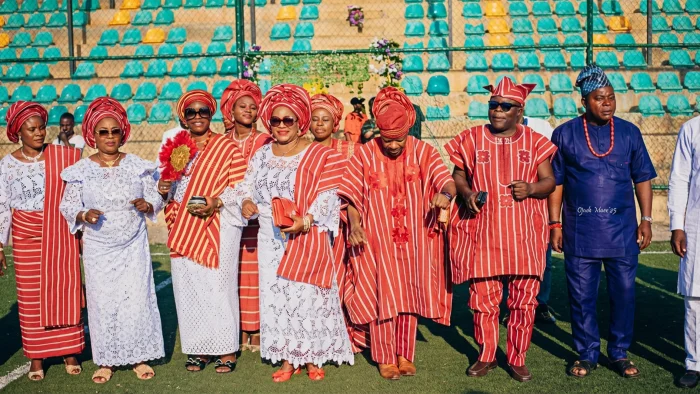The languages spoken across the country form an intricate pattern that reflects the diverse tapestry of its people. However, the haunting specter of extinction looms over some of the major indigenous languages, posing a threat to the rich linguistic heritage that has evolved over the years.
[ad]
According to reports, more than 400 Nigerian indigenous languages are endangered owing to past neglect and denigration. Some languages had already become extinct, while 152 languages were on the verge of being extinct.
The linguistic kaleidoscope of Nigeria encompasses over 500 languages, making it a treasure trove of linguistic variety. Yet, the dominance of a few major languages, coupled with the pervasive use of English as the official language, has inadvertently, led to the marginalisation and neglect of numerous indigenous languages.
“Our greater concern, however, is that our languages are not being handed over to children in homes and schools,” said Prof. Chinyere Ohiri-Aniche at the UNESCO International Mother Language Day Celebration organised by the Ministry of Education in collaboration with the Linguistic Association of Nigeria (LAN) entitled; ‘Local Languages for Global Citizenship: Spotlight on Science.’
“If this trend is not checked, then Nigerian languages will be in extinction in two to three generations, that is in 50 to 75 years,” she noted at the lecture.
Researches show that on the average, 25 per cent of children below 11 years are unable to speak their parent’s indigenous language.
“Nigeria’s linguistic diversity is a reflection of our rich cultural heritage. Each language is a unique expression of the identity and traditions of its people,” says former Finance Minister and a notable advocate of culture preservation, Dr. Ngozi Okonjo-Iweala.
For the late Nigerian author, Professor Chinua Achebe, these languages are not mere strings of words but vessels carrying the collective wisdom of generations. “Losing them means losing a part of our history,” he had said. Each indigenous language encapsulates the nuances of a particular ethnic group’s history, providing a profound connection to their roots. The extinction of a language, therefore, signifies the loss of a unique perspective, a mode of expression, and a repository of cultural wealth.
The contemporary landscape of Nigeria, marked by globalisation, urbanisation, and the pervasive influence of technology, has ushered in a shift among the younger generation. They are increasingly gravitating towards the major languages, often neglecting their mother tongues. “We must empower our youth to embrace their roots. Our languages are bridges connecting us to our heritage, and we must not let them crumble,” urges Chimamanda Ngozi Adichie, an award-winning author and culture ambassador.
Efforts to reverse this trend must be intensified. Language preservation initiatives, community-based programmes, and educational reforms can play pivotal roles. As Professor Wole Soyinka, a Nobel laureate and culture missioner, points out: “As a society, we must invest in language education. It’s not just about words; it’s about preserving our stories, our traditions, and our cultural identity.”
Dr. Pat Utomi, a political economist and cultural preservationist, emphasises: “The government has a crucial role in safeguarding our linguistic heritage. We need policies that actively promote and protect our indigenous languages.”
The extinction of major Nigerian languages is not an inevitable fate. The consequence of this relegation of African mother tongues under the guise of globalisation is that several indigenous thoughts and practices that could be beneficial to both the local and global communities and humanities are looked down upon and jettisoned unwittingly in favour of foreign ways.
Saving these languages from extinction is a call to action, a summons to protect and cherish the linguistic kaleidoscope that defines the nation. Preserving these languages is not just a cultural responsibility; it is an investment in Nigeria’s rich heritage and a commitment to a future where the echoes of diverse languages continue to resonate through the ages.
Integrating indigenous languages into the educational curriculum and encouraging their use in daily life are critical steps toward revitalising these linguistic gems. Government support is paramount in this endeavour. Policies that recognise and promote linguistic diversity, along with substantial investments in language education and cultural programmes can foster an environment where every language is valued and preserved.
Community involvement is equally vital. Grassroots efforts, driven by a sense of cultural pride and identity, can significantly contribute to language preservation. Local initiatives, such as language festivals, storytelling events, and community language schools, can create spaces where the richness of indigenous languages is celebrated and passed on to future generations.
In this collective effort, guided by the wisdom of cultural custodians and the passion of the younger generation, Nigeria can ensure that its linguistic tapestry remains vibrant, resilient, and deeply intertwined with the essence of its identity.
[ad unit=2]








